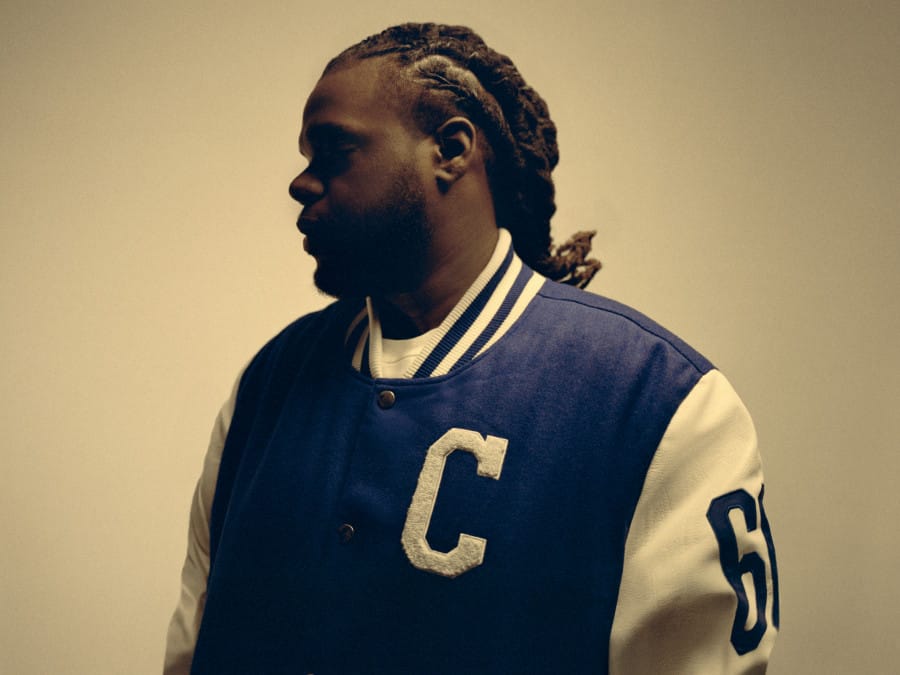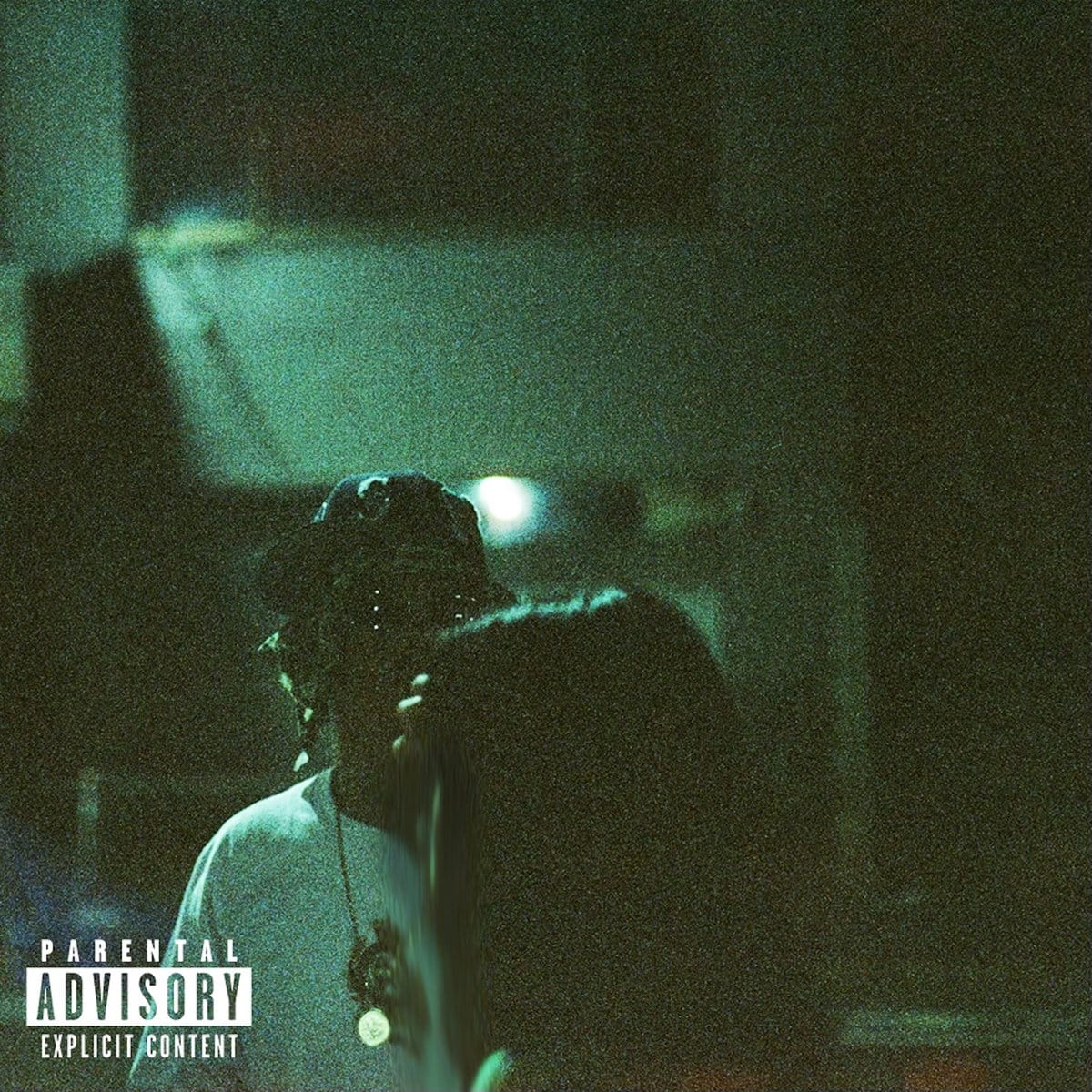Growing Up In Public: An Interview With Child Actor
A go-to producer for indie rappers ELUCID, Navy Blue, and Open Mike Eagle discusses his approach to collaboration.


Towards the end of dinner at Carroll Gardens' Italian-American neighborhood mainstay Frankies Spuntino, Child Actor shares some advice he received from a seasoned producer in the hip-hop underground: Preservation.
"He called me right after [Moor Mother & billy woods'] BRASS to introduce himself," he recalls over the remnants of a tiramisu. "One of the first things he said is, always talk to people that you work with. You need to get to know everyone you work with." Hearing that the value of building relationships trumped that of amassing placements–particularly from someone who'd worked with everyone from GZA and Yasiin Bey to Mach-Hommy and KA–really resonated with the New England native. "When you meet someone and talk to them and things happen, not only do they pay more attention to you and are more willing to work with you, but you can go deeper."
A glance at Child Actor's production discography over the past six, seven years suggests just how seriously he takes these connections, which Preservation likened to family relations during their initial chat. But unlike so many in this industry, whose grindset mentality leads them down avenues where quantity prevails over artistic identity, he's reluctant to choose any safe path that compromises his own creative vision.
"Sometimes, if you give someone something that's too much in their comfort zone, you don't get really something magical," he says, conceding the ease with which he could technically make a type beat aping the style of, say, The Alchemist or someone in the Griselda pack. "And I'll be like, does that beat need to get made? No, I want to make my beat."
Interestingly enough, it seems to be working well for him. Many of the artists in his orbit, comprising an intimate and impressive roster that includes Open Mike Eagle and Serengeti as well as multiple rappers in the BackwoodzStudioz label's circle, tend to return for more. 2025 has proved no exception to his upward momentum, his intricate and evocative instrumentals landing on projects this year from Earl Sweatshirt, Navy Blue, and PremRock, to name a few.
"Every time I send someone beats, it's a very deliberate process," he says. "It takes a long time honestly, and I'll listen to every beat and think about what they might do with it. And let's say they pick this beat. Is this a song I want to hear?"
This current bout of indie rap fame represents a sort of renaissance for Child Actor, which originally began as a singer-songwriter duo that operated in an electronic pop scene relatively removed from the hip-hop one in which he now operates on his own. Still, pieces from that 2010s past have found their way into his contemporary practice, none more pronounced than his recently announced reunion with Deniro Farrar. They go back to that earlier iteration, lending sung hooks to the North Carolina rapper's The Patriarch II and Rebirth projects, but fell out of touch in the ensuing years. "These paths take you away from each other," he says, acknowledging that Farrar stepped away from music during the same period where he began getting considerable traction as a producer. "I would suspect he probably started seeing my name and was like, oh yeah, I remember that guy."
What began as a single track turned into a full project from the pair. They'll release their joint album Raw Materials through Old Soul Music, the imprint run by fellow producer L'Orange, on December 2nd. "He's definitely someone that I would not have thought an obvious choice for the kind of beats that I make," he says of the potential challenge presented by partnering with Farrar in this way. "I think he was craving the opportunity to switch his style up a bit."
Judging by the lead single "Kinetic Sand," this reconciliation surpasses their prior collaborations by dint of their respective growth during the time apart. "He has an amazing, amazing voice, in combination with his flow–which I recognize really well–but also new approaches," he says. "It's like he reached inside and found this new part of himself. It's so cool to witness."
A record like Raw Materials is a rarity in Child Actor's career thus far. Save for a handful of releases such as CINE with Cavalier or sunscreen with shemar, both from 2024, his instrumentals don't usually populate an entire album but instead largely end up alongside those from other producers. That said, he's increasingly taking up more and more real estate on other people's projects, making him not only harder for listeners to ignore in the credits but also more integral to the artists' experiences. Nowhere is this more apparent than on Navy Blue's latest full-length The Sword & The Soaring, which boasts four of his productions including the contemplative single "Orchards."
"Child Actor has been a guiding light and force for me and my creative process," the rapper conveyed via a statement that coincided with the song's release ahead of the album. "When he shared the beat, it was titled 'Orchard,' just as [Memoirs In Armour's] 'Low Threshold' was. The titles of his beats are always spot on and seem to set the stage."
As a producer, Child Actor doesn't necessarily have a great deal of control over what an artist does with his music, but he admits that naming a beat is part of the intentionality behind his approach. "I'll think a lot about the titles actually," he says, ascribing a subtle influential significance to this method across his Navy Blue pieces. "Every song we've done together, he either has maintained the exact title that he had or slightly changed it. 'Kindred Spirit' was originally called 'Kindness' and 'Sunlight of the Spirit' was called 'Lighthouse,' so he finds these words and draws from them textually."




